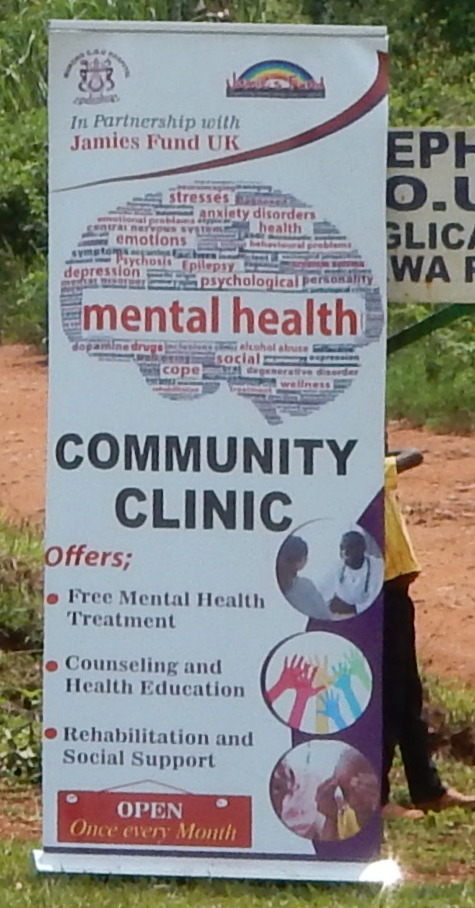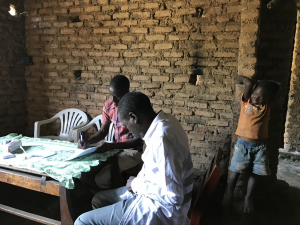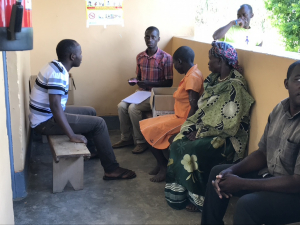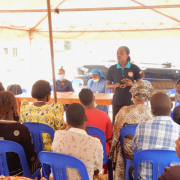Reflections on becoming involved in mental health care

It is probably true to say that even as recently as 2012 most people in the UK were not particularly aware of mental health as a significant issue. Although it has been part of life for many families for years, even in the UK, mental illness and mental health care is usually low in the priorities for funding and is too often stigmatised. Certainly I was not really aware of the size of the problem, but over the last 10 years my understanding has grown while, at the same time, mental health and particularly mental illness have been discussed much more widely in the media. This has been helped significantly by many celebrities speaking out about their own experienced.
When we set up Jamie’s Fund in 2012, I remember going to the inaugural trustees meeting and feeling completely out of my depth as those with great knowledge and experience of both Africa and of mental health discussed what we could do as a charity. Over the past ten years my knowledge has grown considerably, particularly through the privilege of visiting Uganda where I have met some of those with mental illness, as well as the families and health care workers caring for them. I have reflected recently on this journey of discovery, and I would like to share some of those thoughts.
Travelling to Uganda for the first time towards the end of 2016, I was struck by the enormity of the challenge posed by mental illness. It not only disrupts the person life but often that of the family as well. The associated stigma affects the wider family and may make it difficult to find schooling or employment, resulting in poverty for all. It became very clear to me early on that, for many people, access to mental health services to obtain effective treatment is incredibly difficult, and this is particularly true for the very large numbers of people on very low incomes. This is a complex problem: simply getting to a hospital for a consultation takes time and money. It necessitates time away from productive activity which means a further loss of income for families that can ill-afford it. Additionally, this may be needed every month, possibly for years. Also medicines usually have to be paid for. These are difficult choices when you have to balance paying for medicines against meeting the school fees for your children. Without strong support and encouragement patients and their families can easily fall by the wayside.

Again on that first trip, I was privileged to meet a number of those health professionals working with some of the poorest people. Travelling with them to outreach clinics was a revelation and watching them deliver individual care to perhaps 50 or 60 people in a day shows their dedication and commitment. This has made an enormous difference to many lives, and not just to the patients but also to their families and communities as well.
Between 2016 and 2019, I became aware a great surge in interest in mental health that was perhaps as strong in Uganda as in the UK. It certainly seemed to have risen up everyone’s agenda but, as always, the challenge was, and remains, the harnessing of enthusiasm and the provision of funding for effective programmes of treatment and care.
It has been against this background that Jamie’s Fund has been operating. When we first began the charity, our key aim was to commemorate Jamie’s life by the building of a new, more adequate, mental health unit at Kisiizi hospital, so that something positive could come out of his death. Having achieved that and while undertaking a small amount of work with two other hospitals, enabled by a generous legacy, we suddenly found that health care staff at hospitals all over Uganda were wrestling with the delivery of mental health services. We received a great welcome in many hospitals around the country where there was the same strong desire to do good work amongst those with mental illness.

The fact that Jamie’s Fund has been able to support so many initiatives and to train so many people over the past few years, enabling Ugandans to help other Ugandans, has been entirely due to the enormous generosity of many people both in the UK and around the world who have contributed towards the work.
I still feel overwhelmed by the enormity of the challenges posed by mental illness even in the UK, let alone in rural Uganda and yet every individual who has been touched at all is a life improved. That we have been able to touch so many lives is down to the hard work of many health care staff in Uganda and the generosity of our many donors. As Chair of Jamie’s Fund, I would like to thank everyone who has given and continues to give, so generously to support our work.
Hugh Burgess
Chair of Jamie’s Fund

